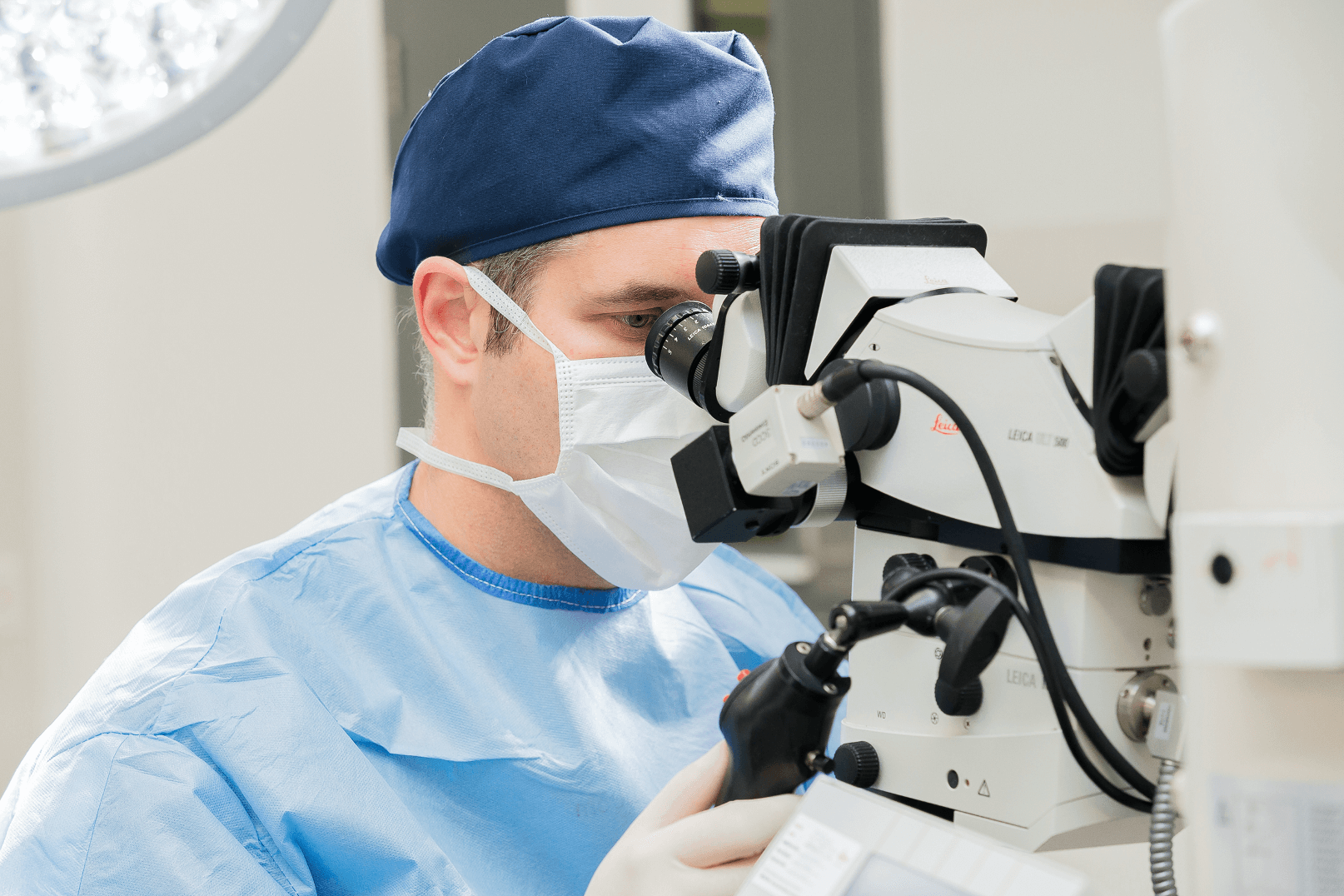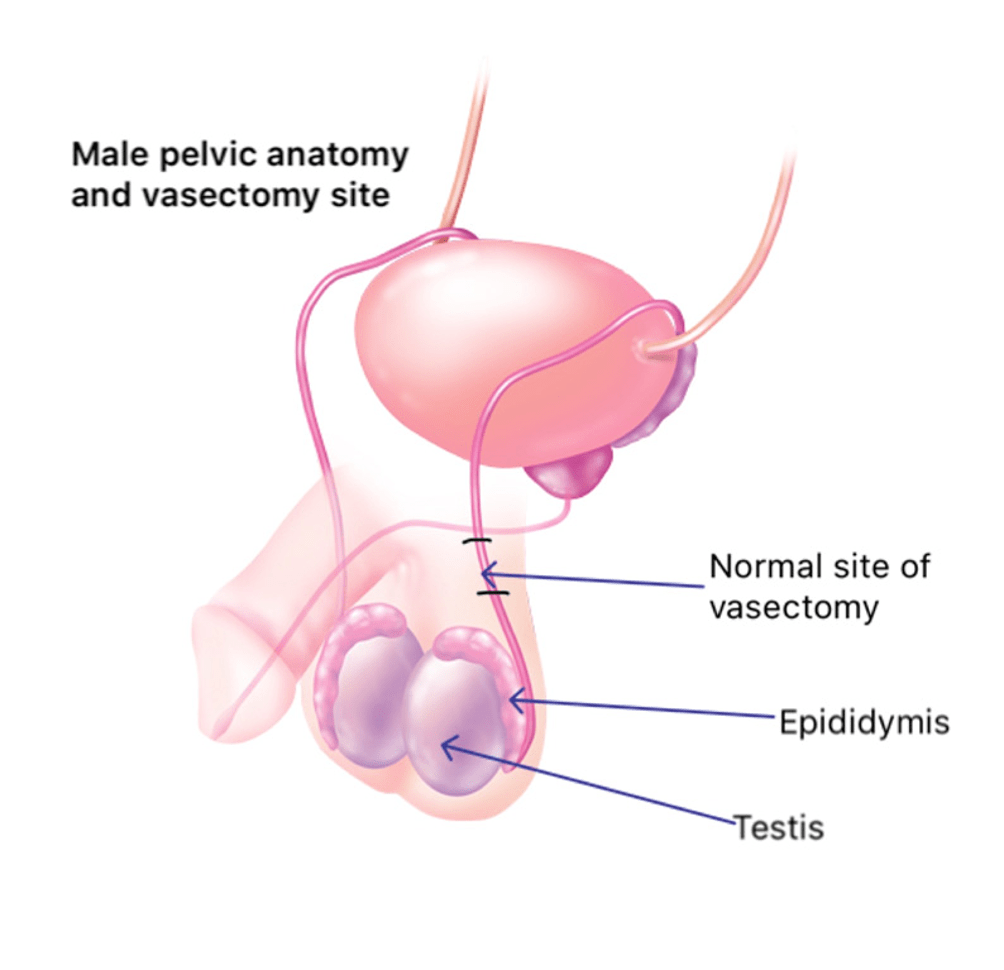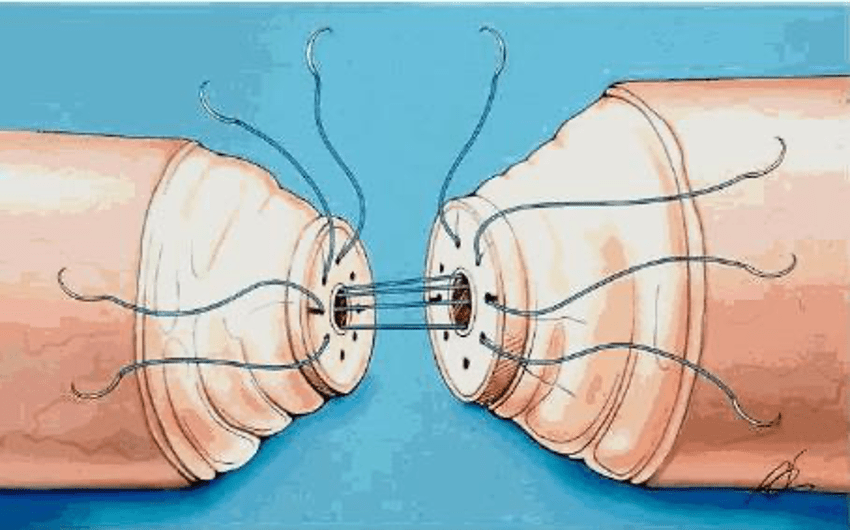Vasectomy
What is a vasectomy?
A vasectomy can provide peace of mind if you and your partner have finished having children. A vasectomy is an extremely common and safe male sterilisation procedure. This day surgery procedure is considered a permanent form of birth control, so careful consideration needs to be entered into before embarking.
Vasectomy does not affect a man’s ability to perform sexually, and unlike female methods of birth control, does not require the use of hormones or repeat procedures.
Please call one of the SydneyUro offices to schedule a consultation to discuss the vasectomy procedure and see if it would suit your particular situation.
Microsurgical Vasectomy Reversal

Following discussion with Dr Symons, the decision on how to proceed will depend on several factors:
- Time since the vasectomy
- Female partner’s age
- Number of new children desired
As a general principal, if the vasectomy was less than 20 years ago, the current partner is less than 35 years old, and there is a desire for more than one child, vasectomy reversal may be a better approach than assisted conception.
Years Since Vasectomy | Patency Rate | Pregnancy Rate |
< 3 | 97% | 75% |
3 – 8 | 88% | 50-55% |
9 – 14 | 79% | 40-45% |
15 – 19 | 70% | 30% |
> 20 | 40% | < 10% |
A vasectomy reversal, performed under general anaesthesia, involves making a small incision and then carefully dissecting through the tissue where the previous operation was performed. Once health tissue is identified, a high powered operating microscopic with 30-40x magnification is used to join these two ends together with sutures nearly invisible to the human eye. This restores the normal flow of sperm through the tube, ready to rejoin the ejaculate


- It is important you maintain a good fluid intake (~ 2L/day) for a few weeks. Water is best. Alcohol is acceptable in moderation after you finish your post-operative antibiotics.
- The scrotum is one of the fastest healing parts of the human body. After surgery, most patients recover very quickly, have very little to no pain and excellent cosmetic results. Dr Symons will closure the skin incisions with a multi-layered closure technique to help to ensure that his patients don’t have infections or bleeding after the surgery. These sutures are dissolving, so there is no need for these to be removed.
- Most patients will find pain to be minimal, and where needed, controlled with oral medication such as ibuprofen and paracetamol.
- Dr Symons advises patients to wear tight-fitting “snug” underwear for 4 weeks following the surgery.
- Dr Symons strongly advises his patients to avoid sex or masturbation for 2 weeks after the surgery. Strenuous exercise, particularly cycling should, be avoided for 4 weeks.
- Return to light duties, such as office work, can occur within 48 hours of surgery
What is a Microsurgical Vasectomy Reversal?
A microsurgical vasectomy reversal is an excellent way to restore fertility for men who have previously had a vasectomy. Dr Symons appreciates that circumstances in life may change, and that with a new partner the restoration of fertility may be extremely important.
Dr Symons is experienced in both vasectomy & its reversal. A vasectomy is a day case procedure that involves the interruption of the supply of sperm, made in the testicle, to the prostate, which produces much of the semen. Dr Symons strongly councils his patients that vasectomy needs to be viewed as a permanent form of male contraception. Nevertheless, around 5-6% of men who have previously undergone a vasectomy will seek reversal.
For a man wishing to start a new family, there are decisions to be made between vasectomy reversal or consideration of assisted reproductive techniques. For couples choosing assisted conception, both the male and female partner will need to undergo procedures – surgical sperm retrieval for the male and surgical egg retrieval for the female partner, often after drug stimulation of her ovulation. On average, the success rate of assisted conception is ~ 30% – 40%, though other factors such as partners’s age & health may also have an affect.

